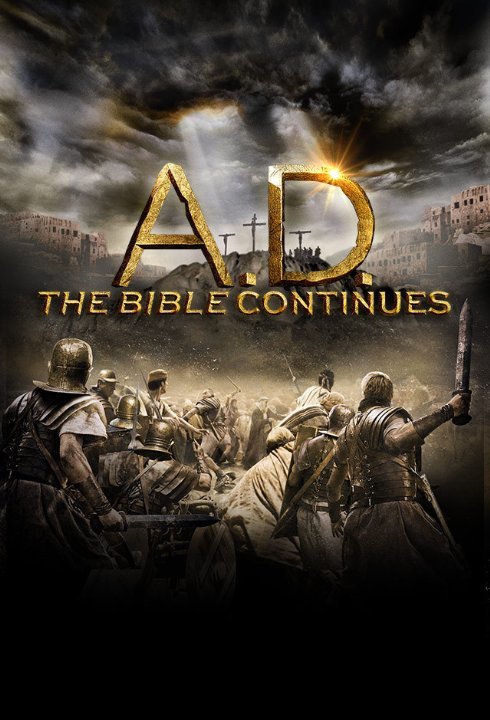
5 Common Mistakes That Parents Make When Evaluating Movies
By Victoria Yu, Movieguide® Contributor
We know that in this day and age, it is not enough just to keep children away from the media. However, when considering which movies are appropriate for children to watch, there can be so many factors to take into account that we may inadvertently fall into one or more of the following pitfalls even with the best intentions. Below are five common mistakes to look out for when evaluating media so that you can help your children intelligently discern the content that they see.
- Neglecting to pray
We can be the greatest parents in the world, but without the Lord’s sovereignty over the process, our work will fail to be spiritually effective if we rely on our own effort.
One of the most powerful ways that we can love our children is to ask the Lord to make their training fruitful and first and foremost work in their hearts, making them not only ready to engage in conversation around media consumption but also responsive to such an approach.
It is only by God’s grace that their training will produce the desired effect, as God is ultimately the One who will transform their hearts to see the true value in it. If God changes the hearts of kings, then we should trust that He can change the hearts of children, too (Proverbs 21:1).
2. Not teaching children about the overall purpose of movies
Most children will naturally assume that movies function to deliver entertainment and enjoyment when in reality they contain a purpose beyond serving as common grace: the glory of God (1 Corinthians 10:31). Some examples of how to use movies for this end include the following:
- Build community and foster fellowship by watching and discussing movies with others.
- Use movies as a tool for evangelism by leveraging them as a common interest when initiating conversation.
- Exercise spiritual gifts such as hospitality by hosting watch parties.
- Be creative. The list goes on!
3. Establishing boundaries without dialogue
The logical next question then consists of how to define what we permit our children to watch. It is healthy to carve out clear boundaries, but we must be prudent to teach our children to think judiciously rather than legalistically.
For example, some parents may choose to rule out all movies with any instance of obscenity, while others may not. Beyond the rule, in light of either turn, after prayerful consideration we must take care to communicate to our children the principle behind it and explain why the parameter is in place. This prevents us from projecting our own personal struggles and sensitivities on our children, who may wrestle with different or additional weaknesses, and instead focus on the biblical grounding behind our reasoning.
Any discussion around movie themes and issues should also remain an open dialogue, even if a certain rule under your guardianship is non-negotiable at the end of the day. This encourages more transparent conversation and stronger convictions, which are critical for raising culture-wise children.
4. Relying on Christian movie reviews alone to do the job
It is a common temptation for parents to rely solely on their filtering of movies based on Christian movie reviews to produce godly, media-savvy children. Nevertheless, it is a missed opportunity not to discuss important themes before and after the movie in order to prepare our children for what they will encounter on screen and help process what they have seen, respectively.
Merely filtering out the content that they watch is insufficient. We must also challenge them to more profoundly evaluate the content pre- and post-viewing through conversation in addition to utilizing the reviews. Rarely ever is a movie all “good” or all “bad”—more often than not, there is some combination of both positive and negative elements.
5. Failing to model godly movie habits ourselves
Sometimes we forget that our kids not only watch movies, but they also watch us. If we hold a high standard for our children, then we should hold ourselves to an even higher one given our life experience and knowledge. It would be a double standard to be easier on ourselves and a delusion to think that we can take on more simply because we are older. In fact, Paul Washer, the founder and missions director of HeartCry Missionary Society, said in his sermon on Romans 12:2:
You are all too trusting in yourself. … I do not trust myself. I know something of my weakness and even if I haven’t experienced it all, I’ve read the Scriptures, and the Scriptures tell me of my weakness. There are things that I will not do, places I will not go and people I will not be with. I must protect myself. … I’m not young anymore. I fear this more now than I did when I was young. I have more reason to fear it. I choose my friends very, very carefully. I choose what I watch with great care, what I listen to with great care, what I read … Why? For the preservation of my soul.
Another time, on the Ministry Network Podcast, Paul Washer said:
Over 35 years or more—I don’t know how long it’s been—I really thought I would have grown. I would have thought that I would have become more holy, that those little foxes that spoil the vineyard, that they would have been eradicated a long time ago. When I look at myself, … I haven’t grown as I thought I would—but then there’s one area in my life where I can say whoa, light years of growth. And what is it? I have grown in my recognition of my absolute need of grace.
The longer that we are a Christian, we tend to believe that we are more able to field sin (be it on screen or in real life). On the contrary, the older that we get, we should realize all the more our weaknesses, how desperately we need the Lord to keep us in Him and how hard we must strive for holiness.
If we want to raise godly children with excellent media habits, we should seek to set a Christlike example. They watch what we watch and will likely mirror leniency on themselves if they see it present in our lives.
Training our children in media discernment starts with training ourselves, and we cannot make the best of decisions for our children if we do not make them for ourselves. Your children need your holiness.
This is not to say that parents can only watch the same content as that of our children, but we should nonetheless exercise just as much discernment.
Where do we go from here?
We hope you found these points helpful. If you would like to explore this topic further, check out The Culture-Wise Family by Ted Baehr and Pat Boone, which provides in-depth commentary on how to navigate our media-filled world in a God-honoring way. You can get a copy via the Movieguide store or Amazon to learn more.
Questions or comments? Please write to us here.


 - Content:
- Content: 

